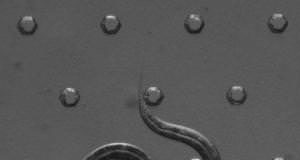Light At Night Causes Changes In Brain Linked To Depression
Exposure to even dim light at night is enough to cause physical changes in the brains of hamsters that may be associated with depression, a new study shows. Researchers found that female Siberian hamsters exposed to dim light every night for eight weeks showed significant changes in a part of the brain called the hippocampus.
The Key To Being Attractive (And Looking Healthy)? A Good Night’s...
If you want to look attractive and healthy, the best thing you can do is get a good night's sleep, finds research in the Christmas issue published on the British Medical Journal website. For the first time, say the authors, there is scientific backing for the concept of beauty sleep.
Sleep Makes Your Memories Stronger, And Helps With Creativity
As humans, we spend about a third of our lives asleep. So there must be a point to it, right? Scientists have found that sleep helps consolidate memories, fixing them in the brain so we can retrieve them later. Now, new research is showing that sleep also seems to reorganize memories, picking out the emotional details and reconfiguring the memories to help you produce new and creative ideas, according to the authors of an article in Current Directions in Psychological Science.
Study Confirms Notion Of “Beauty Sleep”
Swedish researchers present data confirming that that people deprived of sleep for long periods appear less attractive and more unhealthy than those who are well rested. John Axelsson and colleagues conducted an experiment study involving 23 healthy, sleep deprived adults (ages 18 to 31 years) who were photographed and 65 untrained observers (ages 18 to 61 years) who rated the photographs.
Popular Sleep Medicine Puts Older Adults At Risk For Falls, Cognitive...
Adults who take one of the world's most commonly prescribed sleep medications are significantly more at risk for nighttime falls and potential injury, according to a new study by the University of Colorado at Boulder.
Room Light Before Bedtime May Impact Sleep Quality, Blood Pressure And...
According to a recent study accepted for publication in The Endocrine Society's Journal of Clinical Endocrinology & Metabolism (JCEM), exposure to electrical light between dusk and bedtime strongly suppresses melatonin levels and may impact physiologic processes regulated by melatonin signaling, such as sleepiness, thermoregulation, blood pressure and glucose homeostasis.
Sleep Deprivation: Late Nights Can Lead To Higher Risk of Strokes...
New research from Warwick Medical School published in the European Heart Journal shows that prolonged sleep deprivation and disrupted sleep patterns can have long-term, serious health implications. Leading academics from the University have linked lack of sleep to strokes, heart attacks and cardiovascular disorders which often result in early death.
Napping May Help With Blood Pressure Management
A daytime sleep could have cardiovascular benefits according to new research by Ryan Brindle and Sarah Conklin, PhD, from Allegheny College in Pennsylvania in the US. Their study, looking at the effect of a daytime nap on cardiovascular recovery following a stress test, found that those participants who slept for at least 45 minutes during the day had lower average blood pressure after psychological stress than those who did not sleep.
Sleepy Connected Americans
The 2011 Sleep in America® poll released March 7 by the National Sleep Foundation (NSF) finds pervasive use of communications technology in the hour before bed. It also finds that a significant number of Americans aren't getting the sleep they say they need and are searching for ways to cope.
As We Sleep, Speedy Brain Waves Boost Our Ability To Learn
Scientists have long puzzled over the many hours we spend in light, dreamless slumber. But a new study from the University of California, Berkeley, suggests we're busy recharging our brain's learning capacity during this traditionally undervalued phase of sleep, which can take up half the night.
Universal Signaling Pathway Found To Regulate Sleep
Sleeping worms have much to teach people, a notion famously applied by the children's show "Sesame Street," in which Oscar the Grouch often reads bedtime stories to his pet worm Slimy. Based on research with their own worms, a team of neurobiologists at Brown University and several other institutions has now found that "Notch," a fundamental signaling pathway found in all animals, is directly involved in sleep in the nematode C. elegans.
Obstructive Sleep Apnea Linked to Blood Vessel Abnormalities
Obstructive sleep apnea may cause changes in blood vessel function that reduces blood supply to the heart in people who are otherwise healthy, according...













